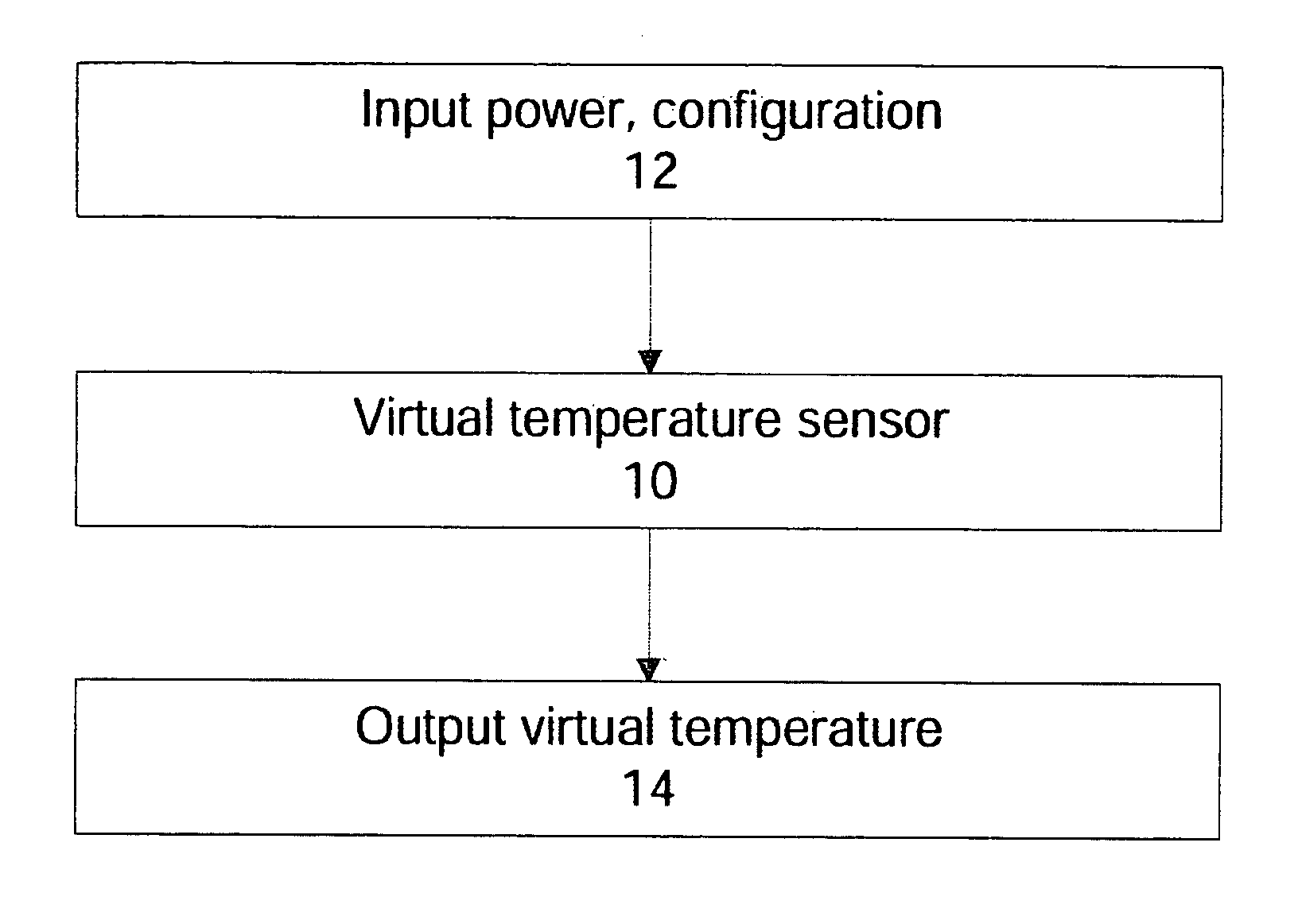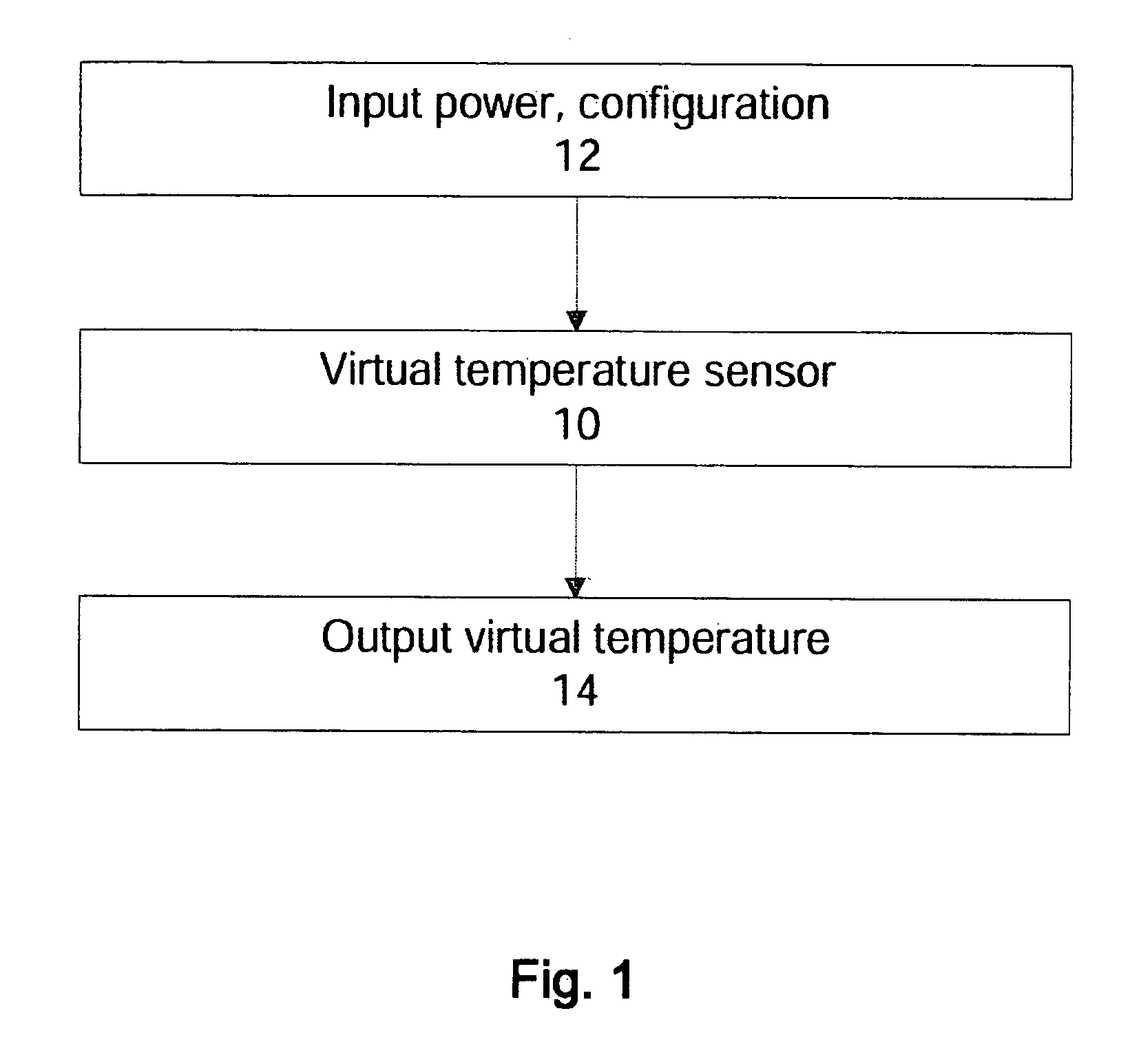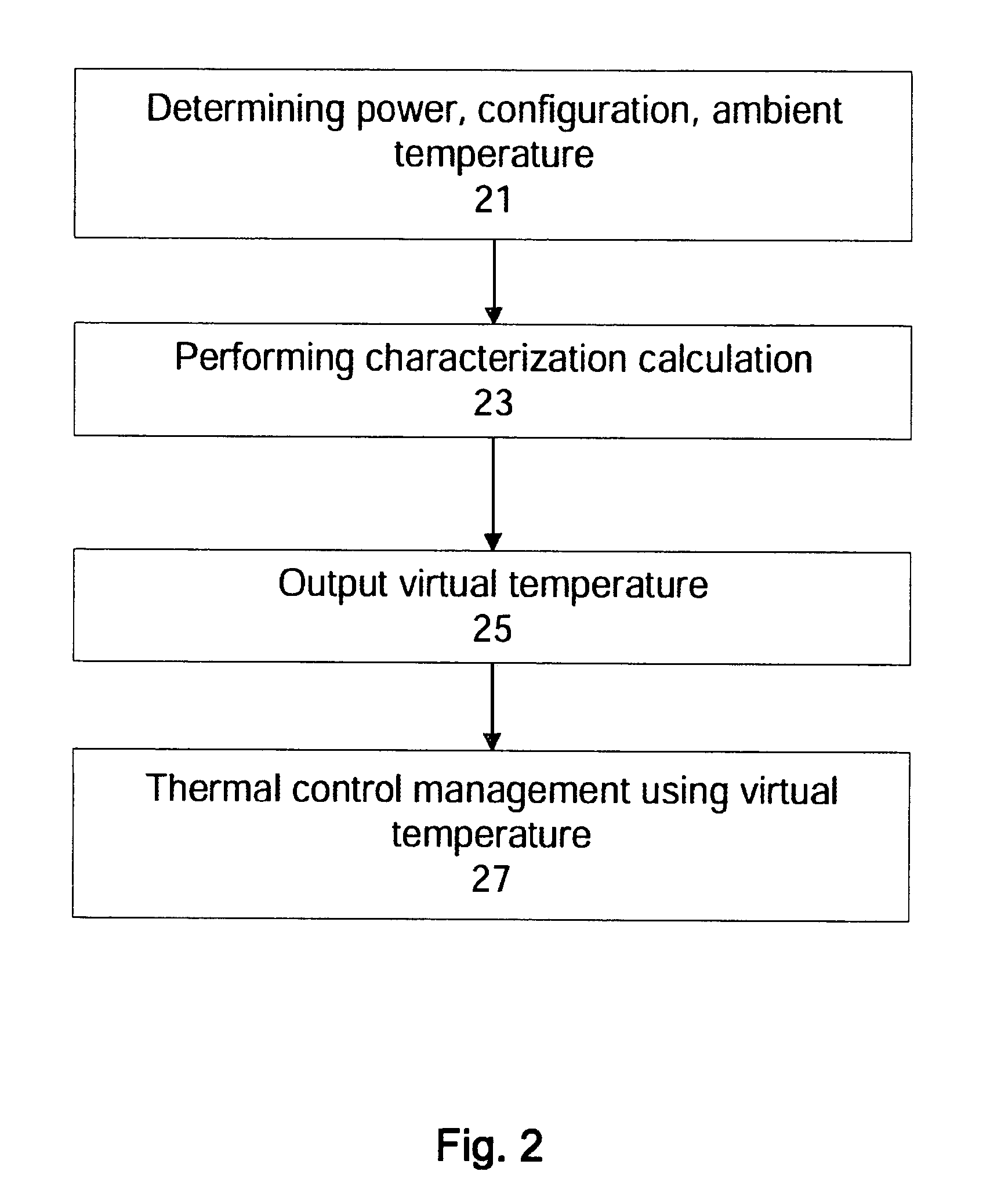Method and apparatus for a thermal control system based on virtual temperature sensor
a virtual temperature sensor and control system technology, applied in the field of data processing systems, can solve problems such as the inability to provide convenient or ideal locations for temperature sensors, the tightening of computer system thermal budgets, and the increase in the difficulty of cooling systems
- Summary
- Abstract
- Description
- Claims
- Application Information
AI Technical Summary
Benefits of technology
Problems solved by technology
Method used
Image
Examples
Embodiment Construction
[0029]The following description and drawings are illustrative of the invention and are not to be construed as limiting the invention. Numerous specific details are described to provide a thorough understanding of the present invention. However, in certain instances, well known or conventional details are not described in order to avoid obscuring the description of the present invention. References to one or an embodiment in the present disclosure are not necessarily references to the same embodiment; and, such references mean at least one.
[0030]In one aspect of an embodiment of the present invention, a data processing system includes a virtual temperature sensor to provide a system temperature to accommodate different system configurations. The virtual temperature sensor provides temperature information from calculations instead of a physical temperature sensor, although these calculations may use either current or stored temperature readings from physical temperature sensors. This ...
PUM
| Property | Measurement | Unit |
|---|---|---|
| temperature | aaaaa | aaaaa |
| thermal time constant | aaaaa | aaaaa |
| temperatures | aaaaa | aaaaa |
Abstract
Description
Claims
Application Information
 Login to View More
Login to View More - R&D
- Intellectual Property
- Life Sciences
- Materials
- Tech Scout
- Unparalleled Data Quality
- Higher Quality Content
- 60% Fewer Hallucinations
Browse by: Latest US Patents, China's latest patents, Technical Efficacy Thesaurus, Application Domain, Technology Topic, Popular Technical Reports.
© 2025 PatSnap. All rights reserved.Legal|Privacy policy|Modern Slavery Act Transparency Statement|Sitemap|About US| Contact US: help@patsnap.com



